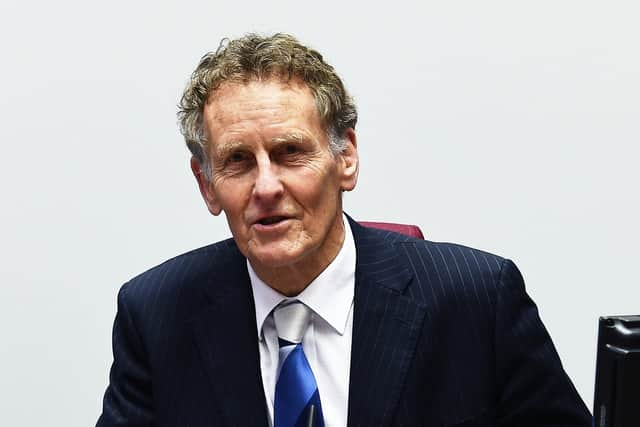RHI Inquiry: Key questions likely to be answered today
and live on Freeview channel 276
Sir Patrick, who is expected to speak for about an hour at Stormont today as the report is published, will give his verdict on a host of individuals and organisations – from First Minister Arlene Foster to powerful DUP special advisors, the Sinn Fein finance minister who appointed him and multiple civil servants right up to the head of the civil service.
Based on Sir Patrick’s terms of reference and the evidence given to the inquiry, here are some of the key questions on which he will have to rule:
Advertisement
Hide AdAdvertisement
Hide Ad• Who was responsible for removing the RHI cost controls, and why was that decision taken?


There was evidence that Arlene Foster’s civil servants decided to remove the cost controls present in the GB RHI scheme because of a recommendation from CEPA, the consultants they employed to advise them on the design of the scheme. But there was also evidence that CEPA had altered other parts of its recommendations to suit what Mrs Foster’s department wanted. A key finding will be whether Sir Patrick says there was evidence of political involvement in those decisions, or whether he rules that out.
• Was key information withheld from Arlene Foster or was she misled?
Fiona Hepper, the head of energy division in Mrs Foster’s department, accepted that in her written submissions to Mrs Foster she had not given her the full picture in several areas – including the funding of the scheme which the written submissions implied would be entirely from the Treasury. But she claimed that she had verbally given Mrs Foster and her special advisor (spad) Andrew Crawford a fuller explanation, something they disputed.
Advertisement
Hide AdAdvertisement
Hide Ad• Did Andrew Crawford deliberately try to delay the scheme being reined in when it was out of control?
Jonathan Bell, the minister who succeeded Arlene Foster, alleged that he was told that Mrs Foster’s spad had interfered in attempts to urgently implement cost controls in the summer of 2015. Dr Crawford vehemently denied this.
• Did DUP chief executive Timothy Johnston try to delay cost controls?
Mr Bell’s spad, Timothy Cairns, accepted that he had attempted to delay cost controls, but said this was because he had been told that by both Mr Johnston – the DUP’s most powerful backroom figure – and Dr Crawford.
Advertisement
Hide AdAdvertisement
Hide Ad• If anyone acted to delay cost controls, what was their motive?
There was evidence to the inquiry that some of those involved in RHI believed it was a good thing for Northern Ireland to overspend because they believed the Treasury was paying the bill. Other evidence suggested that some in Stormont believed RHI’s lucrative rates were good because they benefited massive poultry processor Moy Park in what was a de facto back door subsidy. While each of those reasons would be improper, they would be of a different nature to what was alleged in late 2016 – that powerful DUP figures acted to delay cost controls to benefit their families, friends or DUP donors.
There are also wider questions:
• What is his view of Moy Park’s role in driving the spike in RHI applications and lobbying to keep it open?
• Did the culture of ‘free money’ from London mean that Stormont treated GB taxpayers’ money with less caution than the money in their own budgets?
Advertisement
Hide AdAdvertisement
Hide Ad• If Sir Patrick says spads were overly powerful and unaccountable, how does he think should they operate?
• How can civil servants be held to account without undermining the democratic principle that the minister is accountable for his or her department?